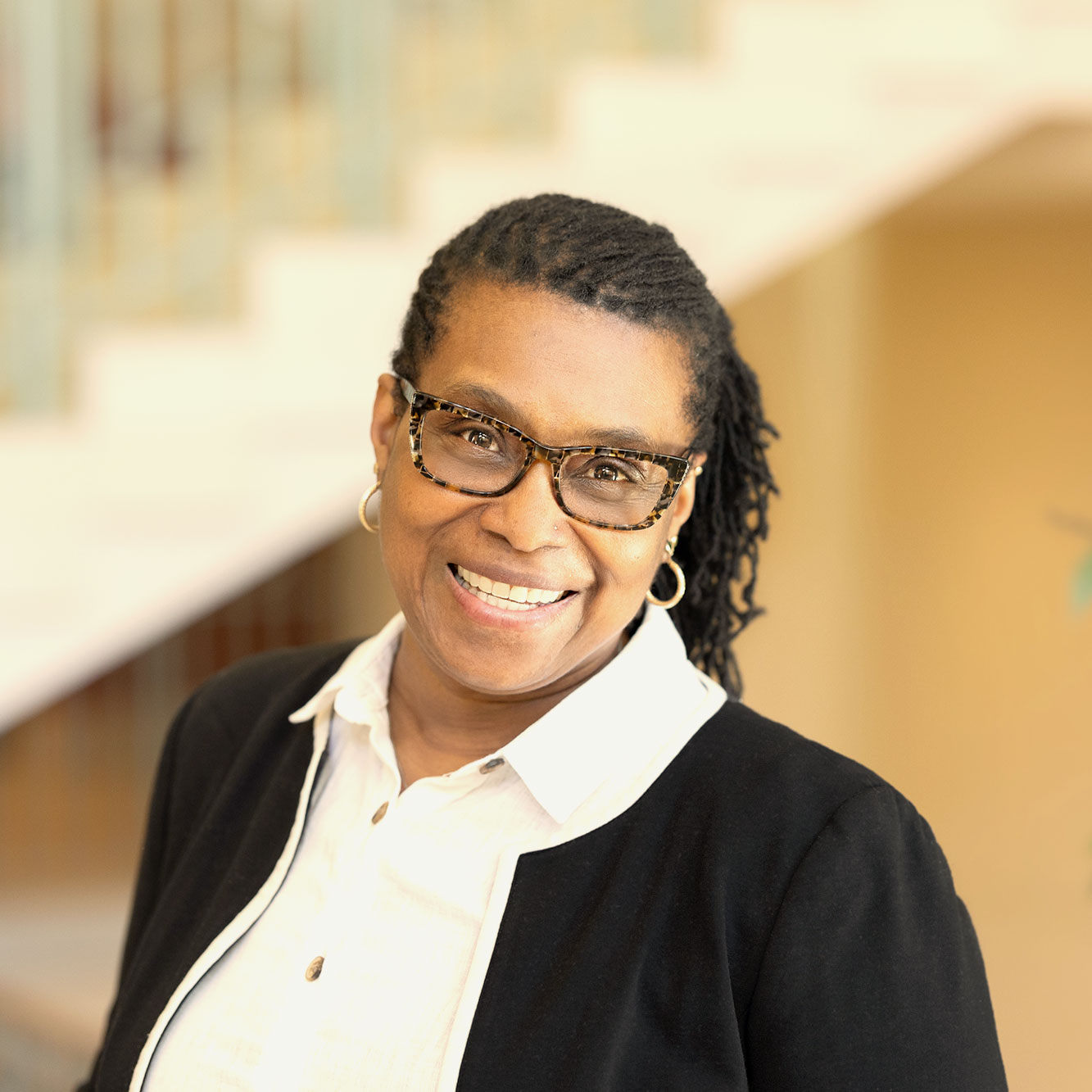Carolyn Gardner-Thomas
Director, Mathematics for Teaching Program, Harvard Extension School

What do you like about teaching at Harvard Extension School?
The students by far are the highlight of my work at the Extension School, and nothing compares to the interactions I have with them on a daily basis. Their enthusiasm, curiosity, and passion never fail to inspire me. They continuously challenge me to think critically and push the boundaries of my own knowledge. I am grateful and excited to learn from my students and for their contributions to my growth as a director and instructor.
What are your areas of expertise/interest?
Mathematics, statistics, and STEM education are areas of great interest to me. I position my work at the intersection of leadership, mathematics, and instruction. My math leadership course is a good example of my areas of expertise and interest. The course empowers teachers to leverage their students’ current positioning and identity development in relation to STEM and to create safe, authentic math learning spaces for all students.
Through a Forward Design Framework that I’ve crafted, I challenge teacher leaders and administrators to think about projections for students’ mathematics engagement and their personal connections to STEM to motivate interest in the learning of mathematics.
What first drew you to your field?
There are two early memories that have had a profound impact on my love of math and that have shaped my appreciation for problem-solving and thinking outside the box from a young age. The first involves one of my dads, who would challenge me with unique math problems and encourage me to find creative ways to solve them. The second memory is of a teacher in grade school who placed a sticker of a strawberry on one of my math tests, with the message “the sweet smell of success.” The strong scent of strawberries from the sticker lingered on the paper, creating an association between math and strawberries that has stayed with me to this day.
What are some essential topics you cover in your course(s)?
I currently teach calculus, statistics, and math education courses. However, I would like to highlight my Math Teacher Leadership course, which helps educators enhance their teaching practices and support systems for their students. The course promotes teachers’ collaborative work to transform school culture in support of all learners of mathematics. Through mentoring, coaching, and other professional development opportunities, we explore ways to support math teachers in their growth and development. We also delve into conducting curricula reviews, non-judgmental classroom observations, and research for conference presentations and publications.
What can a student expect to gain from the course?
My courses focus primarily on problem-solving so students can be expected to gain problem-solving skills—problem-solving of novel, challenging math problems; problem-solving aimed at shifting entrenched out-moded ideas about what it means to learn and do mathematics; and problem-solving when creating learning opportunities to address the conundrum of teaching students who we continuously position as lagging in their math performance.
Who would benefit the most from your course(s)?
Students passionate about improving mathematics teaching, learning, and school culture will benefit immensely from the Math Leadership course designed for teachers interested in exploring innovative ways to drive school improvement efforts and create a positive impact in the field of mathematics education.
The course offers a valuable opportunity for teacher leaders and administrators to collaborate in designing and implementing system-based approaches to drive school improvement efforts in mathematics teaching, learning, and school culture. Through timely, relevant, data-informed, and sustainable strategies, students will acquire the tools needed to make meaningful changes in math education.
Do you have a memory or anecdote from a class or a student partnership that you’d like to share?
I always welcome opportunities to continue to work with my students beyond the Math Leadership course and the Mathematics for Teaching program. Currently, I’m providing technical leadership on a math study project that one of my former students is working on with the Ministries of the Bahamas. My student formed her own math consultancy firm in the Bahamas after graduating from the Math for Teaching program, and I’m happy to partner with her on efforts to strengthen the pedagogical skills and deepen the content knowledge of mathematics teachers throughout the country. It is always a pleasure to see my former students thriving in their careers, and I am grateful for the chance to continue to mentor and support them in their endeavors.
More About Carolyn
Dr. Carolyn Gardner-Thomas is the director of the Mathematics for Teaching Program at the Harvard Extension School. She also serves as research advisor and a math instructor in the program.
She earned her PhD in mathematics, science, and learning technologies at the University of Massachusetts (UMass), Amherst. Her research focused on science, technology, engineering, and mathematics (STEM) identity construction through mathematics teacher noticing. She holds a master’s degree in mathematics and education from Smith College and a bachelor’s degree in chemical engineering from UMass, Amherst.
Prior to pursuing her doctoral degree, Dr. Gardner-Thomas taught college and high school mathematics for more than 15 years. She worked as an administrator at the UMass STEM Ambassadors Program and STEM Diversity Institute, Mount Holyoke College Licensure and Math Placement Program, and Holyoke Community College STEM Starter Academy. She also worked as a chemical engineer in fuel cells development in New York.
In addition to her current work at the Harvard Extension School, Dr. Gardner-Thomas works with international STEM programs (including Haiti and the Bahamas) to support the teaching and learning of mathematics at all levels.